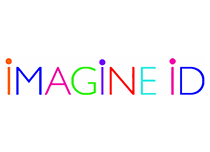In 2001, the Human Genome Project successfully described the entire genetic code of a single person. This milestone was just the beginning of a new revolution in genomics for rare disease.
People who will benefit most from our ability to sequence the human genome rapidly are those with genetic changes related to intellectual disability or learning difficulty.
Imagine being a family who has known for years that your child has delayed development:
“I always knew there was a problem and it comes as a relief that the cause of the problem has been found.”
“It is good to know that my other children are not at risk.”
But after the initial information has sunk in the next questions often are:
“We know the name of the gene but what does this mean for my child.”
“What treatment can be offered?”
IMAGINE ID
Our understanding of the genetic causes of many rare disorders is still quite new. This is why a group of researchers in Cambridge, Cardiff, and London set up the IMAGINE ID study, collecting information about children with a genetic diagnosis related to learning problems.
The study hopes to recruit 5,000 families; the more families who are enrolled, the more useful the information will be, especially for families with very rare conditions.
What’s involved?
Parents complete an online questionnaire about their child and soon after receive a summary report. This report has been welcomed by families:
“Until I sat down and answered all the questions, I hadn’t really appreciated the number of peculiar little character traits that my son has.”
“I’m going to take it into school so that they can put it in the file – any new professionals will be able to get a written summary and picture of my the child.”
Avery
 We wanted to acknowledge the children’s contribution to the project and the information gathered about them.
We wanted to acknowledge the children’s contribution to the project and the information gathered about them.
We commissioned Marta Altes to write a book for children, Avery, about rare disease and participating in research.
The response to Avery has been overwhelmingly positive. Every family is sent a copy when they join the study; Avery is also available to purchase online: click here
“It’s the most wonderful story ever. I can’t describe how much it describes our family – my little girl is excited to show her teachers.”
And perhaps the most touching comment is from a brother…
“Mum, have you read this book? You’ve got to read it! It’s just like me and Aiden. The little bird finds things difficult like Aiden does, but the brother bird is always with him, helping him, just like I help Aiden.”
We need your help!
 We have successfully recruited more than 2,200 participants but we urgently need more…
We have successfully recruited more than 2,200 participants but we urgently need more…
To be eligible, your child must be aged four years or older and have a genetic diagnosis with intellectual disability, learning difficulty or developmental delay.
To find out more please visit http://imagine-id.org/ or contact the IMAGINE ID team: imagine.id@nhs.net or 01223 254631.
















